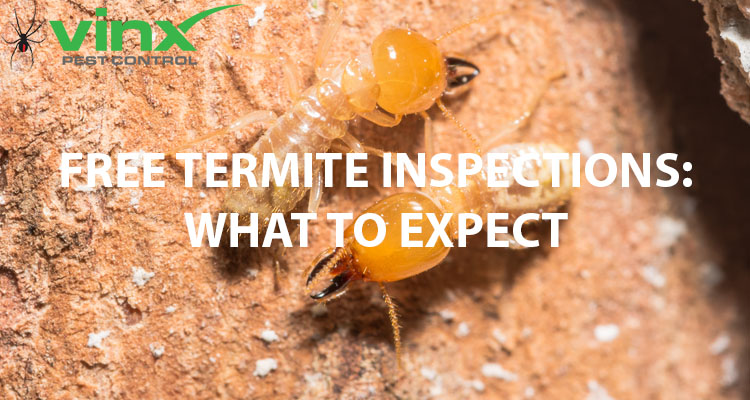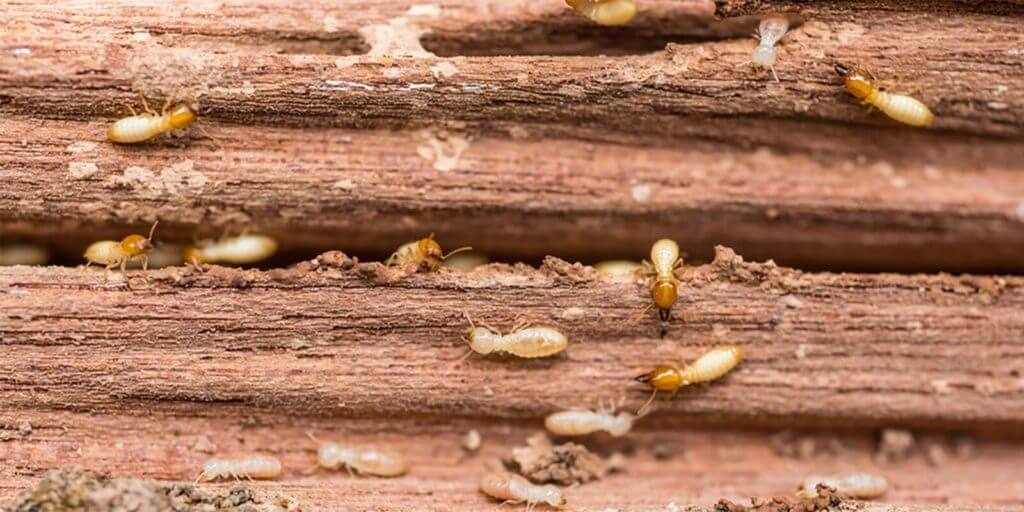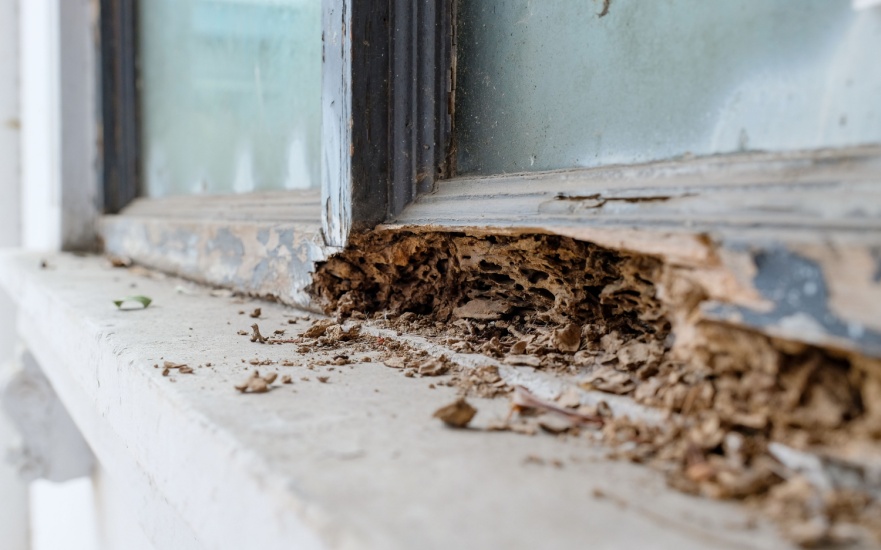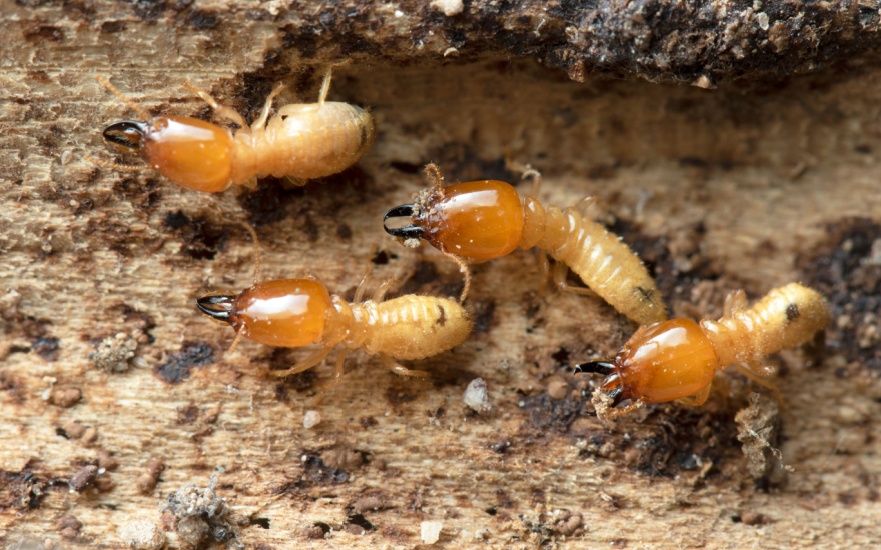Termites can quietly harm homes, causing a lot of damage before anyone notices. Homeowners often don’t realize how important it is to fix termite problems fast. This can lead to very expensive repairs.
It’s true that termite problems can be scary. It’s key to know the common mistakes people make when dealing with these pests.
Not fixing termite issues can cost thousands of dollars. Getting regular checks from professionals can spot problems early. For more info on common mistakes and how to avoid them, check out our detailed guide on the topic.
Key Takeaways
- Regular inspections can help detect termite damage early.
- DIY solutions may not address all termite damage.
- Professional extermination services can determine the best treatment.
- Store-bought products aren’t guaranteed to work on all types of termite infestations.
- Decks, fences, and porches should be professionally inspected once a year.
The Silent Destroyers: Why Termite Issues Threaten American Homes
Termites are a big problem for homes in America. They can damage buildings a lot, which means expensive fixes. People often don’t know how big a risk termites are until it’s too late.
The Biology Behind Termite Destruction
Termites live in groups and eat wood and other cellulose. They can damage wood from the inside, making it hard to see until it’s too late. For tips on spotting termite issues early, check out our guide on how to check for termites yourself.
- Termites eat wood and cellulose-based materials.
- They live in groups, causing a lot of damage.
- Their eating habits can weaken a home’s structure.
Annual Cost of Termite Damage in the United States
Termite damage costs the U.S. billions of dollars each year. Some important facts are:
- Termite issues costs Americans over $5 billion a year.
- More than 600,000 homes get treated for termites every year.
- Fixing termite damage can cost between $300 and $3,000 per home.
It’s important for homeowners to know about termite damage and its costs. This helps them take steps to protect their homes.
Mistake #1: Ignoring Early Warning Signs of Termites
Many homeowners ignore the first signs of termites. This can lead to big problems if not fixed soon. Knowing the early signs helps avoid expensive fixes.
Visual Indicators: Mud Tubes, Wings, and Frass
Termites show signs like mud tubes and wings. Mud tubes are along walls or foundations. They help termites get to food.
Wings near windows or doors mean termites are around. Frass, or termite poop, looks like sawdust. It’s near where termites live.
For more info, check https://vinxpestcontrol.com/what-are-the-top-signs-i-have-a-termite-problem/. It talks about termite signs.
Structural Signs: Hollow Wood and Damaged Paint

Termites can also damage buildings. Wood that sounds hollow has termites inside. They eat wood from the inside.
Paint damage shows termites too. Bubbling or peeling paint means termites are pushing stuff through.
Seasonal Swarms: When Termites Become Visible
Termite issues are easy to spot when they start to swarm. This happens at certain times of the year. Swarming termites look like flying ants.
Seeing a swarm means there’s a big termite problem. You need to check it out and might need a pro.
Mistake #2: Attempting DIY Termite Control Without Expertise
Many homeowners try to control termite issues on their own. But, this can be very bad. It might not work, could be harmful, and can hurt the environment. To fight termites well, you need to know a lot about them and how to treat them.
Why DIY termite control often fails is important to know. It’s because of bad over-the-counter treatments and how they are used wrong.
Limitations of Over-the-Counter Termite Treatments
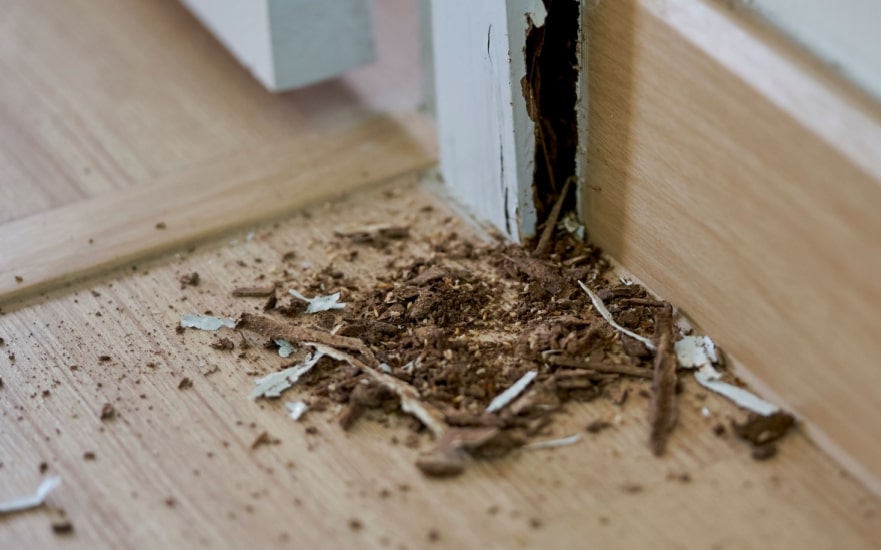
Over-the-counter termite treatments have big problems. They are not strong enough to kill off all termite issues. Some main issues are:
- They don’t get deep into wood and other places termites live
- They don’t stay active long, so termites come back
- They don’t cover all areas, missing some termites
To learn if you need termite protection, visit https://vinxpestcontrol.com/do-i-need-termite-protection-at-my-house/.
Health and Environmental Risks of Improper Application
Using DIY termite control wrong can be very dangerous. It can harm your health and the environment. Some dangers are:
- Being exposed to harmful chemicals can cause breathing problems or skin issues
- It can pollute soil, water, and air
- It can hurt pets and animals because of wrong use or throwing away
Why Partial Treatments Lead to Recurring Infestations
DIY termite control often only treats part of the problem. This means termites keep coming back. The main reasons are:
- It doesn’t cover the whole area where termite issues are
- It doesn’t have follow-up treatments to get rid of all termites
- It doesn’t fix the main reasons for termites, like too much moisture
Mistake #3: Delaying Professional Termite Inspection and Treatment
Waiting too long to get a termite check is a big mistake. Termite issues can damage a house fast. So, acting quickly is key.
Not acting fast can cause big problems. A small termite problem can turn into a big, expensive fix. Knowing the hidden costs of termite infestations is important.
The Exponential Growth of Termite Damage Costs
Termite damage costs can grow fast if not fixed. A small problem can turn into a big, expensive fix. For example, a small problem might cost a few hundred dollars. But ignoring it can make the cost thousands.
The cost of termite issues grows fast. As termites spread, the damage gets worse. This shows why fixing termite problems quickly is important.
Colony Expansion Rates and Structural Impact Timeline
Termite colonies grow at different rates. This depends on food, moisture, and the type of termite. Even a small colony can cause big damage fast. For example, subterranean termites can grow big and cause a lot of damage in a few years if not treated.
Knowing when termite damage shows up is key. Damage often shows up after a few years. By then, the colony is big and the damage is severe. Regular checks can catch problems early.
When Insurance Won’t Cover Termite-Related Repairs
Many think insurance covers termite damage. But most policies don’t. This means homeowners have to pay for repairs and treatments themselves.
It’s important to know what insurance covers. Termite issues and damage is often not covered. This shows why taking care of termites early is important to avoid big costs.
Common Termite Species Infesting American Properties
The United States has many termite species. Each one is different and can harm properties. Knowing about these termites helps protect our homes.
Subterranean Termites: Foundation and Structural Threats
Subterranean termites are very harmful in the U.S. They live underground and use mud tubes to get to food above ground. This makes them a big threat to our homes’ foundations and structures.
Drywood Termites: Furniture and Wood Component Damage
Drywood termites live in dry wood and don’t need soil. They can harm furniture and wood parts in buildings. They don’t make mud tubes, so damage is often not seen until it’s too late.
Formosan “Super” Termites: Aggressive Colony Behavior
Formosan termites are very aggressive and form huge colonies. They are a type of subterranean termite that can damage a lot in a short time. Their colonies can have millions of termites. They can also infest buildings above ground, making control harder.
It’s important to know which termite is causing the problem. Each type needs a special plan to get rid of them and stop them from coming back.
Professional Termite Treatment Options and Their Effectiveness
Knowing about different termite treatments is important. Homeowners have many choices to fight termite problems. Each treatment works for different types and levels of infestations.
Liquid Termite Barriers and Soil Treatments
Liquid termite barriers use a special liquid around and under buildings. It stops termites from getting in. This method kills termites and stops them from coming back.
- Works well against subterranean termites
- Applied around homes or under foundations
- Needs careful application to work well and not harm the environment
Termite Baiting Systems: How They Work
Termite baiting systems are another good choice. They use bait stations around homes. These stations have poison that termites carry back to their nest, killing the queen and others.
- Good for killing termite colonies without treating the whole area
- Stations are checked often to see if termites are there and if the bait is working
- Can be used with other treatments for better results
Whole-House Fumigation for Severe Infestations
For big termite issues, whole-house fumigation might be needed. This method seals the house and fills it with a deadly gas for termites.
- Works for big or widespread termite problems inside a house
- Everyone must leave the house during treatment and follow safety rules
- Only professionals should do this because of the dangerous gases used
Each termite treatment has its own benefits. They are good for different types and levels of termite problems. Knowing about these options helps homeowners choose the best treatment for their needs.
Proactive Termite Prevention Strategies for Homeowners
To keep homes safe from termites, homeowners need to act early. They should maintain their homes well, stay alert, and plan their gardens wisely.
Moisture Management and Wood-to-Soil Contact Elimination
Termites love moisture. So, it’s key to keep the home dry. Here’s how:
- Fix leaks and make sure water drains away
- Use dehumidifiers to lower humidity
- Use materials that don’t attract termites or treat the soil
By managing moisture and keeping wood away from soil, homeowners can lower termite risks.
Home Maintenance Practices That Deter Termites
Keeping the home in good shape is vital. This means:
- Looking for termite signs often
- Sealing up cracks and gaps
- Clearing away things that attract termites
By doing these things, homeowners can keep termites away and avoid infestations.
Landscaping Considerations for Termite Prevention
Landscaping can help prevent termites. Homeowners should:
- Plant plants that keep termites away from the home
- Avoid mulch and wood chips near the foundation
- Trim trees and bushes to prevent moisture buildup
By using these landscaping tips, homeowners can better protect their homes from termites.
Choosing a Qualified Termite Exterminator: Critical Questions
Many termite exterminators are out there. Homeowners need to ask the right questions to find a good one. It’s not just about getting rid of termites now. It’s also about stopping them from coming back.
Credentials, Experience, and Treatment Methods
When you pick a termite exterminator, check their credentials and experience. Look for those certified by groups like the National Pest Management Association (NPMA). Their experience shows they know how to deal with different termites and methods.
It’s important to know how they plan to treat termites. They might use liquid barriers, baiting systems, or fumigate the whole house. Each method works best for different problems.
Understanding Termite Warranties and Ongoing Protection Plans
A good exterminator will offer a warranty or protection plan. These plans can be very different. It’s key to know what’s covered and for how long.
Some plans include yearly checks and treatments. Others might just offer one treatment with a promise. Ask about the details of the plan, including any extra costs for renewals or more treatments. Knowing this helps with budgeting and keeping termites away for good.
Building a Long-Term Defense Against Termite Issues
To keep termites away, we need a strong plan. This plan should include ways to stop termites and control them. We should not ignore signs of termites or try to fix them ourselves without help.
Knowing about termites helps us stop them before they start. We can keep our homes dry and away from wood. We also need to take care of our homes to keep termites away.
There are good ways to fight termite issues like special barriers and bait systems. When picking a termite expert, look at their skills and methods. This helps keep our homes safe from termites for a long time.
Using these steps, we can keep our homes safe from termites. This saves us money and keeps our homes in good shape. Keeping termites away is key to protecting our homes.
FAQ
Q: What are the most common signs of termite infestation?
A: Signs of termite issues include mud tubes and discarded wings. You might also see frass and hollow wood. Swarms of termites are another sign.
Q: How much damage can termites cause to a home?
A: Termites can damage a home’s structure a lot. They can harm the foundation and wood. The cost of termite damage in the U.S. is very high.
Q: Can I treat termite issues myself, or do I need a professional?
A: You can buy termite treatments, but they might not work well. They can also be harmful if not used right. Experts have the right tools and know-how to fight termites.
Q: What are the different types of termite treatment options available?
A: There are many termite treatments. These include liquid barriers, baiting systems, and fumigation. The best one depends on the infestation.
Q: How can I prevent termite infestations?
A: To stop termites, manage moisture and keep wood off the ground. Regular home checks are also key. Keeping your yard clean and trees away from your home helps too.
Q: What should I look for when choosing a termite exterminator?
A: Look for a termite exterminator’s experience and methods. Make sure they offer warranties and ongoing protection. This ensures your home stays safe from termites.
Q: How quickly can termite colonies grow and cause damage?
A: Termite colonies grow fast. They can damage your home quickly. Getting help early is important to avoid expensive fixes.
Q: What are the most common termite species found in American properties?
A: In the U.S., you’ll find subterranean, drywood, and Formosan termites. Each type damages homes in different ways.
Q: Will my insurance cover termite-related repairs?
A: Insurance usually doesn’t cover termite damage. Fixing termite problems quickly saves money and avoids big losses.
Q: How often should I inspect my home for termites?
A: Check your home for termite issues often. Do it at least once a year. If you live where termites are common, check more often.



